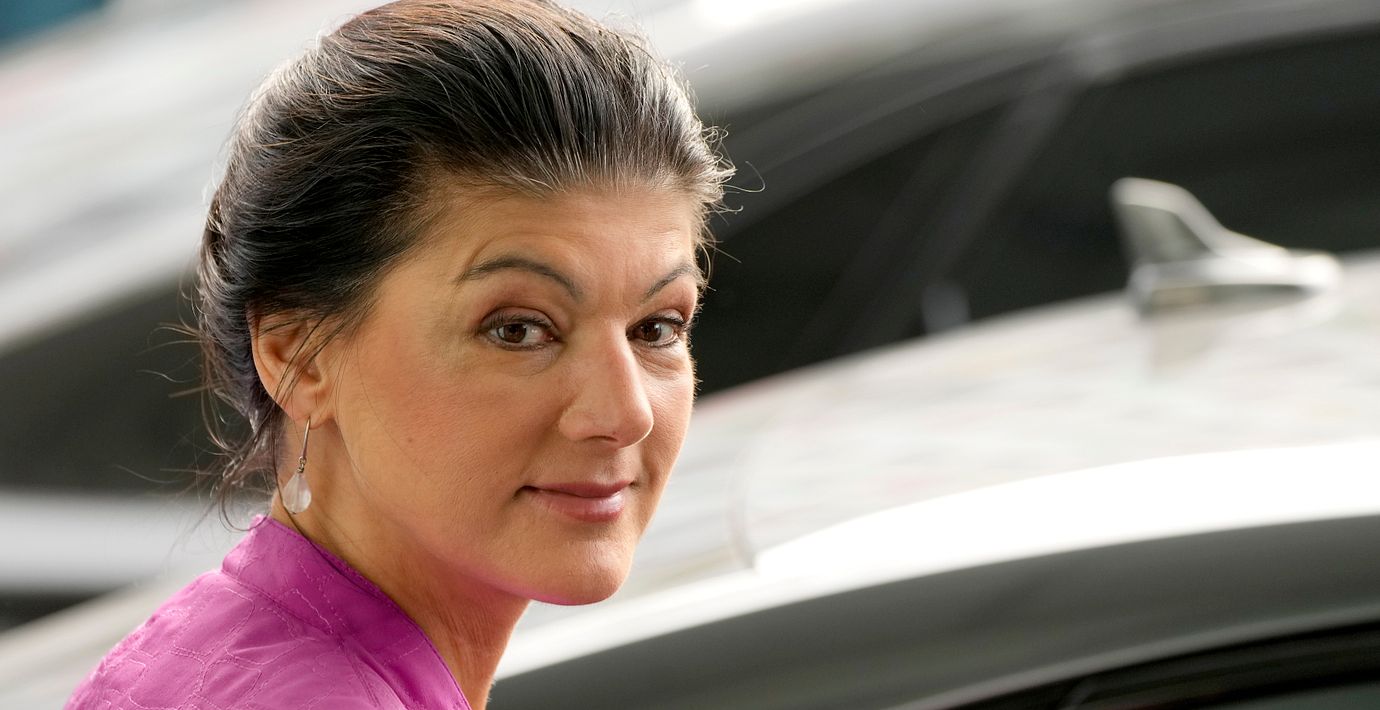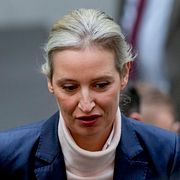
Tysk vänsterikon slutar leda sitt eget parti
Den tyska vänsterveteranen Sahra Wagenknecht avgår som partiledare för det parti som bär hennes namn, Bündnis Sahra Wagenknecht (BSW), rapporterar Politico.
BSW grundades i fjol och blandar inslag av yttervänster- och ytterhögerpolitik i vad Wagenknecht kallar ”vänsterkonservatism”. Partiet fick stor uppmärksamhet och vann många väljare inför nyvalet i februari, särskilt i Östtyskland, men missade i slutändan förbundsdagens femprocentsspärr med runt 10 000 röster.
Wagenknecht uppger att hon kommer förbli en nyckelfigur i partiet. Hennes medpartiledare Amira Mohamed Ali förblir på sin post, och ledamoten Fabio De Masi ser ut att ersätta grundaren.
Partiet uppges också överväga ett namnbyte.
bakgrund
Sahra Wagenknecht
Wikipedia (en)
Sahra Wagenknecht (German: [ˌzaːʁa ˈvaːɡŋ̍ˌknɛçt]; 16 July 1969) is a German politician. She was a member of the Bundestag from 2009 to 2025, where she represented The Left until 2023. From 2015 to 2019, she served as that party's parliamentary co-chair. With a small team of allies, Wagenknecht left the party on 23 October 2023 to found her own Eurosceptic, populist party, Bündnis Sahra Wagenknecht, which unsuccessfully contested the 2025 federal election, narrowly failing the 5% threshold. Since 2025, she no longer holds any public office.
Wagenknecht became a prominent member of the Party of Democratic Socialism (PDS) from the early 1990s. After the foundation of The Left in 2007, she was a leading member of one of the party's most left-wing factions as leader of the Communist Platform. Her economic views shifted since then; she laid them out in her book Freedom instead of Capitalism, in which she analyses Germany’s economic policy at the time of the euro crisis and criticises it on the basis of ordoliberalism.
She has been one of the main driving forces in the formation of Aufstehen, a left-wing political movement established in 2018, which exists outside of traditional political party structures and has been compared to the French movement La France Insoumise. She has made some controversial statements about immigration and refugees and gender affirming care. From 2020 onward Wagenknecht was less active in parliament, but was often interviewed by German media. She is not a member of any parliamentary committee.
Since 2021 she had openly considered forming her own party, due to growing and enduring conflicts within the Left Party and at the end of September 2023 Wagenknecht formed the Sahra Wagenknecht Alliance political party, better known as BSW (Bündnis Sahra Wagenknecht). She ran as the Chancellor candidate of the BSW in the 2025 German federal election. In November 2025 she announced her resignation as leader of BSW.
Bündnis Sahra Wagenknecht
Wikipedia (en)
The Sahra Wagenknecht Alliance – Reason and Justice (German: Bündnis Sahra Wagenknecht – Vernunft und Gerechtigkeit; BSW) is a political party in Germany founded on 8 January 2024. It has been described as a left-wing to far-left party with populist and nationalist tendencies. The BSW is sceptical of green politics, criticises support for Ukraine in the Russo-Ukrainian War, criticises support for Israel in the war in Gaza and holds Eurosceptic and anti-American views on foreign policy. The party is considered "left-conservative" or "left-authoritarian", as it combines economically socialist values with cultural conservatism and social conservatism on social issues.
The party originated as a split from the party The Left (Die Linke). In September 2023, Sahra Wagenknecht, Amira Mohamed Ali, Christian Leye, Lukas Schön, and several other long time Left party members announced their intention to form a new party. It was subsequently joined by others including former Left party leader Klaus Ernst, Fabio De Masi, and former mayor of Düsseldorf Thomas Geisel. The Sahra Wagenknecht Alliance was officially founded in January 2024 with Wagenknecht and Mohamed Ali as its leaders. In February, they formed a group in the Bundestag.
The BSW contested its first elections in May. In June, the party won 6.1% of votes nationally in the European Parliament elections. In September, it won between 11% and 16% in three eastern state elections in Saxony, Thuringia, and Brandenburg. As of 2025, the BSW is part of governing coalitions in two states: Thuringia (Blackberry coalition) and in Brandenburg (Red–purple coalition). In the 2025 German federal election, the party received 4.981% of second votes, narrowly missing the 5% threshold required to be allocated seats in the Bundestag.
Omni är politiskt obundna och oberoende. Vi strävar efter att ge fler perspektiv på nyheterna. Har du frågor eller synpunkter kring vår rapportering? Kontakta redaktionen



